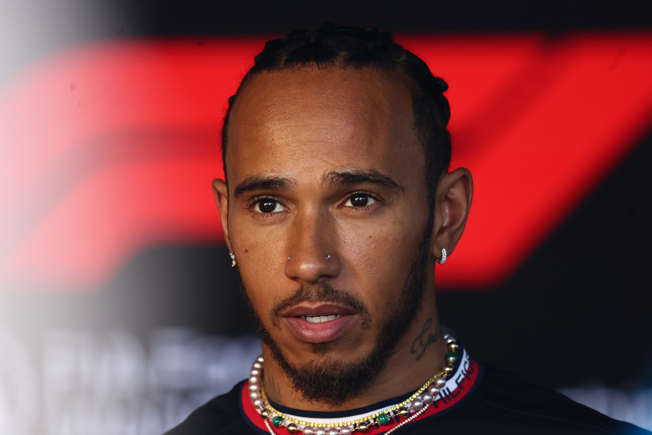Formula 1 legend Lewis Hamilton, known for his grit and unparalleled success on the track, has revealed a deeply personal struggle that began long before his rise to fame.
In a recent heartfelt interview, Hamilton shared that he has been battling depression since the age of 13, shedding light on the mental toll that both personal and professional pressures have had on him throughout his life.

Hamilton, who grew up in a working-class family in Stevenage, England, explained that the roots of his depression can be traced back to his early teenage years. At just 13 years old, he was already thrust into the high-stakes world of karting, where he was determined to become one of the few Black drivers in motorsport, an environment that was often unwelcoming.
“At that age, I felt immense pressure to prove myself. Not just as a driver, but as a young Black boy in a sport where I often felt out of place,” Hamilton said. “The expectations were enormous, and I constantly felt like I had to be perfect to belong.”
The pressure to succeed, combined with experiences of racism and isolation, had a profound impact on his mental health. He described feeling overwhelmed and alone during much of his adolescence, struggling to find balance in a world that was both highly competitive and emotionally taxing.
As Hamilton’s career skyrocketed, his battle with depression continued, often masked by the glitz and glamour of being a world-renowned athlete. Despite his record-breaking seven world championships and countless accolades, he revealed that the weight of expectations often intensified his internal struggles.
“People see the success, the podiums, the victories. But behind the scenes, there’s a lot of mental strain. There were times when I didn’t feel like I was enough, even with all the achievements,” Hamilton admitted. “I was constantly fighting my inner demons.”
Hamilton has also spoken candidly about how social media scrutiny and public criticism worsened his mental health, especially when he took stands on issues such as racial injustice and environmental activism. He often felt torn between using his platform for good and the mental toll it took to handle the backlash.
In recent years, Hamilton has become more vocal about mental health, not just for himself but for others in high-pressure environments. He’s opened up about therapy, mindfulness practices, and his ongoing journey toward better mental well-being. He attributes much of his progress to learning how to ask for help and making self-care a priority amid the relentless demands of his career.
“For the longest time, I thought I had to be strong and silent, that talking about my mental health was a weakness,” Hamilton shared. “But I’ve learned that acknowledging your struggles and seeking help is one of the bravest things you can do.”
Hamilton’s openness has been a source of inspiration for many, especially young athletes who may feel isolated in their own battles with mental health. By sharing his story, he hopes to encourage others to prioritize their well-being and recognize that even the most successful individuals face challenges behind closed doors.
Despite his struggles, Hamilton remains a symbol of resilience, both on and off the track. He continues to dominate in Formula 1, but with a renewed focus on mental health and a mission to create lasting change in the world. He has also been a vocal advocate for improving mental health resources for athletes and reducing the stigma around mental illness.
“As I continue in my career, I want to show that it’s okay not to be okay,” Hamilton said. “I want to be part of the movement that normalizes talking about mental health, especially for young people who are facing the same pressures I did.”
Lewis Hamilton’s candid revelation about his lifelong battle with depression offers a glimpse into the human side of a man often viewed as invincible. His courage to speak up not only highlights the challenges faced by elite athletes but also serves as a reminder that mental health is just as important as physical health. Hamilton’s journey is a testament to the power of vulnerability and the strength it takes to confront inner battles—whether on the racetrack or in everyday life.
Through his openness, Hamilton is paving the way for a more compassionate and understanding approach to mental health, inspiring others to embrace their own challenges and seek the support they need.
